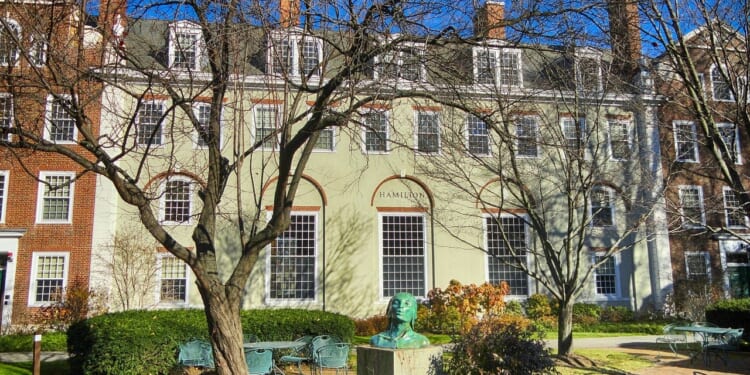Andrew Kerr writes for the Washington Free Beacon about a Harvard professor with a questionable background.
The Harvard Law School professor arrested for firing a pellet rifle outside a Massachusetts synagogue on the eve of Yom Kippur has ties to several of America’s elite institutions, which have hosted the DEI activist as a visiting professor and poured money into his Brazilian nonprofits.
Before he landed at Harvard, the professor, Carlos Portugal Gouvea, who told police when he was arrested he was shooting rats, not targeting Jews, spent 2018 as a senior research scholar at Yale Law School and a visiting scholar at the University of Pennsylvania’s Wharton School of Business. Those gigs followed the publication of a 2013 paper funded by Harvard’s David Rockefeller Center for Latin American Studies advocating for the redistribution of goods in Brazil to reduce economic inequality.
Back in Brazil, Gouvea is a founding member of several nonprofits that have received lavish funding from American billionaires, including the Instituto Sou da Paz, a think tank that has received more than $2.7 million over the past decade from George Soros’s Open Society Foundations. Instituto Sou da Paz played a major role in securing the passage of a 2003 Brazilian gun control law that required its citizens to register their firearms in a national database and made it illegal to carry weapons outside of their homes. Although pellet guns, such as the one Gouvea used to “hunt rats” on Wednesday, aren’t considered firearms under Brazilian law, citizens are nonetheless barred from carrying them in public.
Gouvea also serves as CEO of the Global Law Institute, a Brazilian organization that has received at least $250,000 from the Ford Foundation since September 2022 to fund a program dedicated to “training young Black, Brown, Indigenous, and Quilombola researchers” to become influential voices in “climate justice, a just energy transition, and the rights of Indigenous and traditional peoples.”











